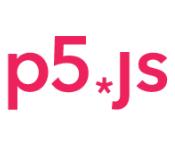| Nature Of Code MOOC From Processing Foundation |
| Written by David Conrad | |||
| Monday, 09 May 2016 | |||
|
A course in creative computing that uses p5.js to capture natural phenomena in the physical world started on May 3rd on Kadenze. Taught by Dan Shiffman, Processing Foundation's co-founder, with guest lectures from Lauren McCarthy, artist, programmer and creator of p5.js. p5. js is a JavaScript library that starts with the original goal of Processing to make coding accessible for artists, designers, educators and beginners. This new course on the Kadenze platform is at intermediate level and a background in JavaScript would be helpful. To meet the course instructors and for an introduction to p5.js see the video in p5.js Bringing Processing To The Web. The cryptic name of this course, The Nature of Code is explained is this course description: Can we capture the unpredictable evolutionary and emergent properties of nature in software? Can understanding the mathematical principles behind our physical world help us to create digital worlds? This class focuses on the programming strategies and techniques behind computer simulations of natural systems. We explore topics ranging from basic mathematics and physics concepts to more advanced simulations of complex systems. Subjects covered include physics simulation, trigonometry, fractals, cellular automata, self-organization, and genetic algorithms. Examples are demonstrated using the p5.js environment with a focus on object oriented programming. For more information see this video from the ever-exuberant Dan Shiffman. The course opened its doors on May 3rd and has the following timetable:
Kadenze’s free tier allows you to the video lectures and participate in Forum discussions. If you want to submit assignments receive grades and a certificate of accomplishment, premium membership is $10 a month.
Shiffman is also the author of a book with the same name as the course. It covers much of the same subject matter - understanding the mathematical principles behind the physical world to help us to create digital worlds and programming strategies and techniques behind computer simulations of natural systems - but the book's examples are in Processing. More InformationRelated Articlesp5.js Bringing Processing To The Web Processing Version 2.0 Released
To be informed about new articles on I Programmer, sign up for our weekly newsletter, subscribe to the RSS feed and follow us on Twitter, Facebook, Google+ or Linkedin.
Comments
or email your comment to: comments@i-programmer.info
|
|||
| Last Updated ( Tuesday, 12 July 2016 ) |



